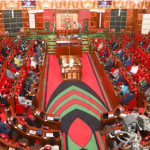As concerns linger over lack of basic competencies required for the present-day labour market among graduates, education stakeholders insist on the need for full implementation of Competency-Based-Curriculum (CBC) to enable learners compete effectively.
The less than a decade-old curriculum has been taking shape in the country in a new focus to develop critical thinking, creativity, and practical skills to better equip young citizens to flourish and compete effectively globally.
Though still faced with a myriad of challenges among them inadequate teachers training, expensive learning materials required to be purchased by parents, inadequate teaching and learning resources, poor teacher-learner ratio, lack of ICT skills and infrastructure among others, stakeholders hold that CBC is key in adequately preparing learners for current and future labour markets and life.
Led by Brillian Diamond School Principal Joseph Mureithi Ndung’u, the stakeholders stated that learners need appropriate exposure to relevant real-life requirements.
This, they said, calls for the inclusion of cross-cutting ideas, processes, and practical skills in their curriculum from the early stages of education.
Speaking at the school based in Murera village in Juja, Kiambu County, Ndung’u stated that with CBC, students are able to develop skills such as communication, collaboration, critical thinking, problem-solving, imagination, creativity, citizenship, and digital literacy.
His sentiments were echoed by Margaret Wangari and Joan Wanjiku who urged the government to support privately-owned learning institutions offering the curriculum to fully implement it and ensure a smooth transition.
With the curriculum having weathered numerous storms since it was introduced to replace the old 8-4-4 system of education, the stakeholders said that most private institutions were still faced with infrastructural challenges and urged the government to offer them soft loans and other incentives to enable them to accommodate more learners.





